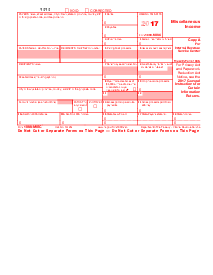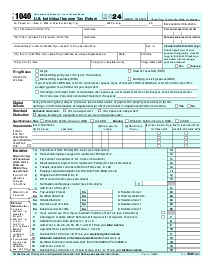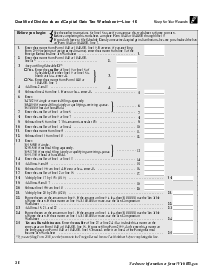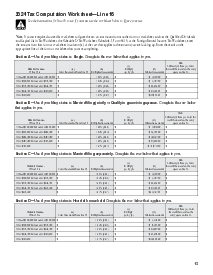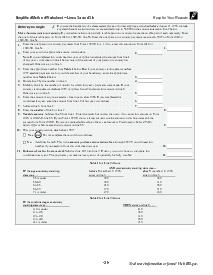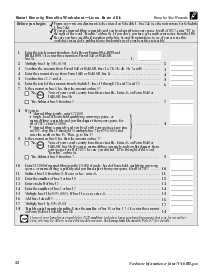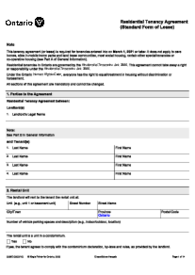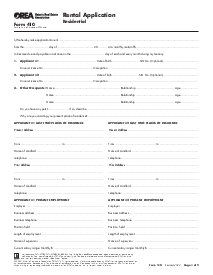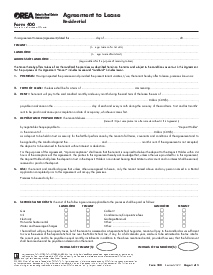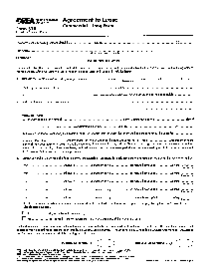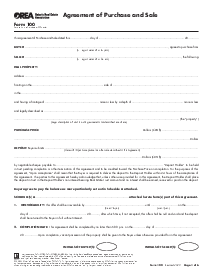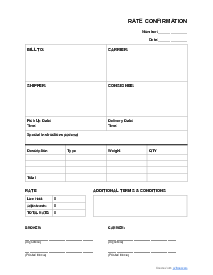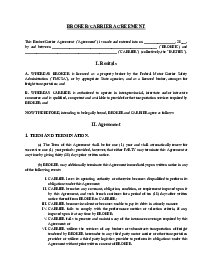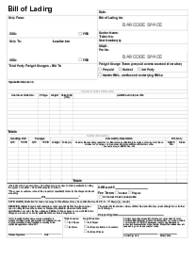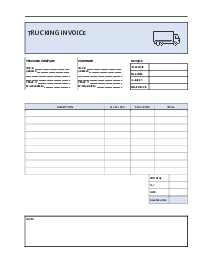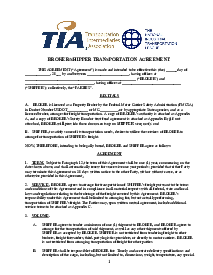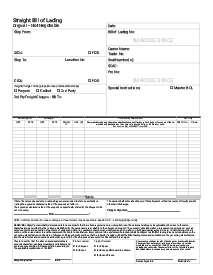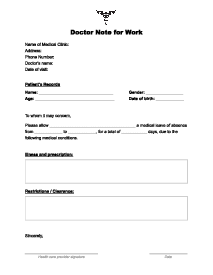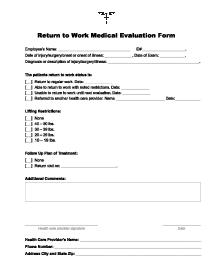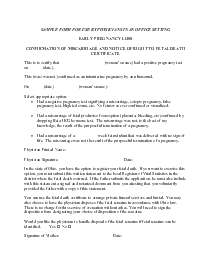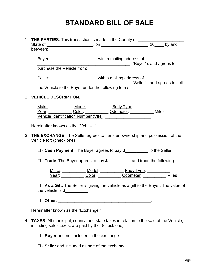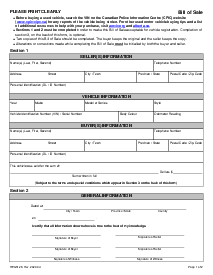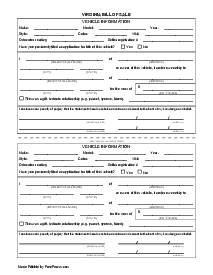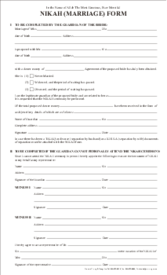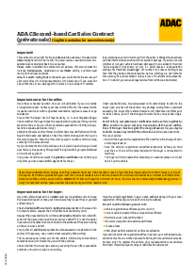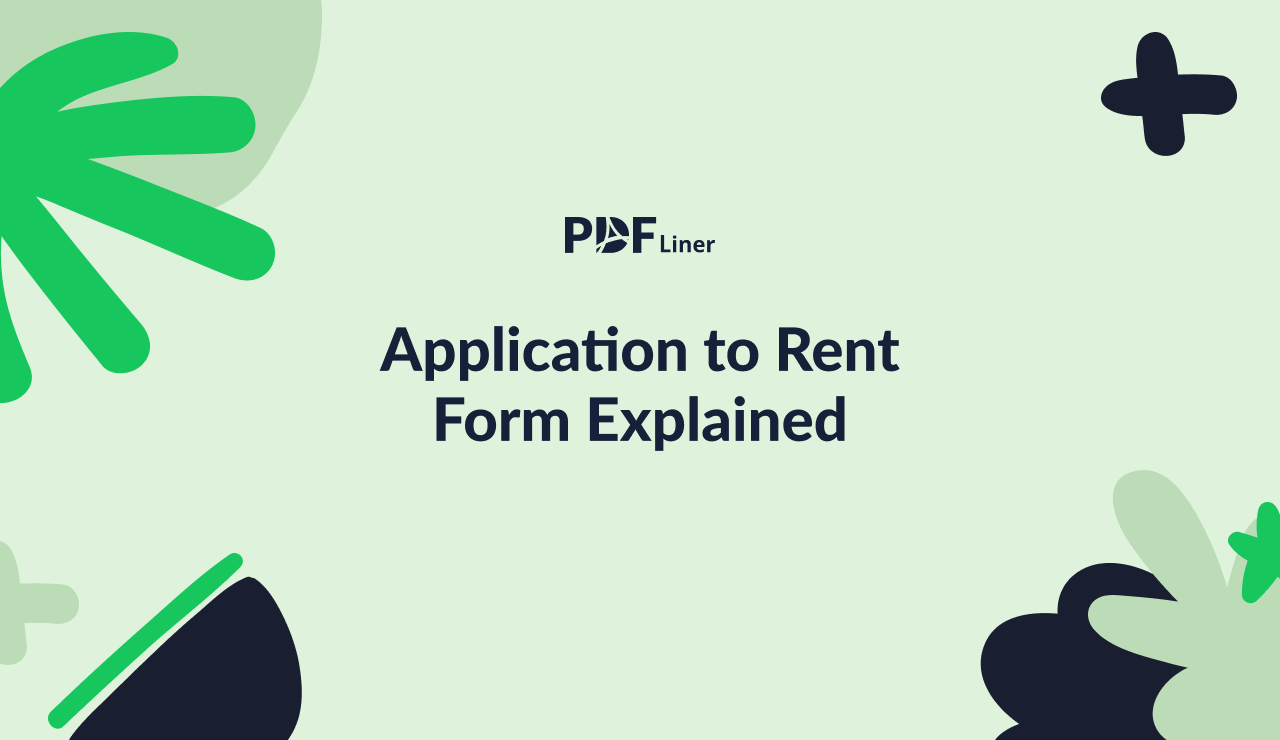-
Templates
1099 FormsAccurately report 1099 information returns and ensure IRS filing with easeExplore all templatesW-9 W-8 FormsEasily manage and share taxpayer details to streamline payments and meet IRS requirements with confidenceExplore all templatesOther Tax FormsFillable tax forms simplify and speed up your tax filing process and aid with recordkeeping.Explore all templatesReal EstateReal estate templates for all cases, from sale to rentals, save you a lot of time and effort.Explore all templatesLogisticsSimplify your trucking and logistics paperwork with our ready-to-use transportation and freight templates.Explore all templatesMedicalMedical forms help you keep patient documentation organized and secure.Explore all templatesBill of SaleBill of Sale templates streamline the transfer of ownership with clarity and protection.Explore all templatesContractsVarious contract templates ensure efficient and clear legal transactions.Explore all templatesEducationEducational forms and templates enhance the learning experience and student management.Explore all templates
-
Features
FeaturesAI-Enhanced Document Solutions for Contractor-Client Success and IRS ComplianceExplore all featuresAI Summarizer Check out the featureAI PDF summarizer makes your document workflow even faster. Ask AI to summarize PDF, assist you with tax forms, complete assignments, and more using just one tool.Sign PDF Check out the featurePDFLiner gives the opportunity to sign documents online, save them, send at once by email or print. Register now, upload your document and e-sign it onlineFill Out PDF Check out the featurePDFLiner provides different tools for filling in PDF forms. All you need is to register, upload the necessary document and start filling it out.Draw on a PDF Check out the featureDraw lines, circles, and other drawings on PDF using tools of PDFLiner online. Streamline your document editing process, speeding up your productivity
- Solutions
- Features
- Blog
- Support
- Pricing
Application to Rent Form Explained

Liza Zdrazhevska
In the words of Bobby Unser, “Success is where preparation and opportunity meet.” If you want to achieve success in filling out your application to rent form, we’ve got you covered. We'll walk you through everything you need to know — from gathering documents to standing out from the competition. Whether you're a first-time renter or an experienced pro, our tips are guaranteed to make the process smoother. Keep reading for more.

Requirements for Rental Application
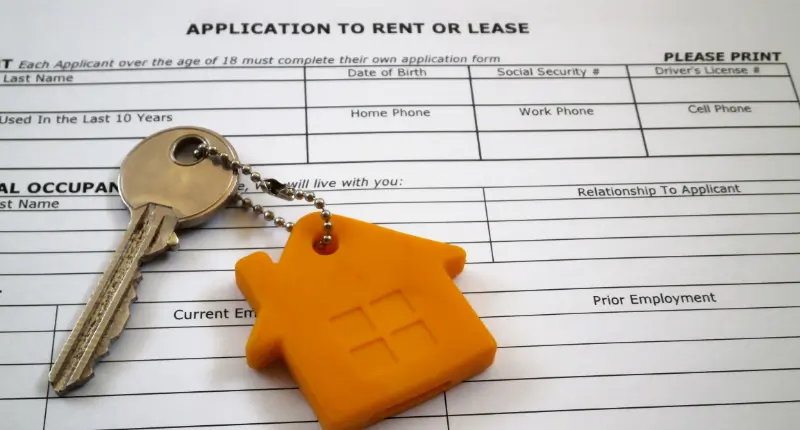
Applying to rent a new place? Here's what you need:
- Proof of Income. Landlords like to be aware that you can pay the rent. Bring pay stubs, bank statements, or tax returns.
- Credit Check. Your credit score shows how good you are with money. Proprietors are very much into tenants with good credit scores.
- Rental History. Previous addresses and landlord references help show you’re a responsible tenant.
- Background Check. No skeletons in the closet! Landlords often check for criminal history.
- Identification. A photo ID e.g., a driver's license or a passport, proves you are who you say you are.
- Application Fee. Be ready to pay a fee that covers the cost of credit and background checks.
- Co-Signer. If your income or credit isn't great, a co-signer may be required to guarantee rent payments.
Meeting these requirements can make your rental application smoother than a freshly waxed floor!
Filling Out a Standard Rental Application
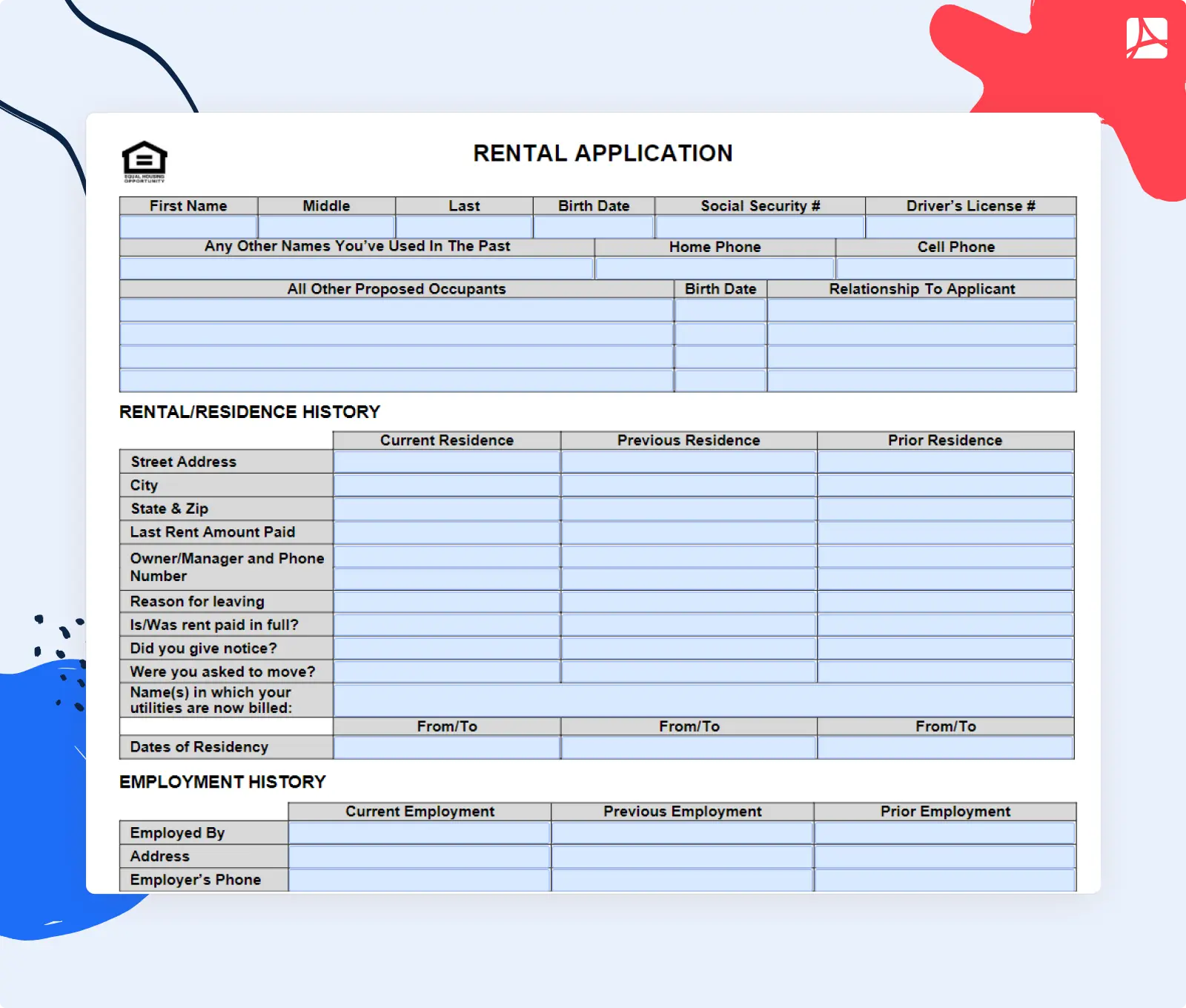
Does filling out a rental application feel like climbing a mini-mountain of paperwork? It's a vital step in getting your new home. No worries, we’ll lend you a helping hand. Below, we’ve shared a straightforward guide to help you through the process.
1. Personal information
This is the easy part. Begin by specifying basic info about yourself:
- Full Name. Indicate your legal name as it shows on your ID.
- Date of Birth. No need to fudge the numbers — accuracy is paramount.
- Contact Information. Specify your phone number and email address.
- Social Security Number. This is often required for credit and background checks.
2. Residential history
Landlords want to know your living habits. You’ll need to:
- List Previous Addresses. Provide at least two to three previous addresses.
- Landlord Contacts. Include names and phone numbers of previous landlords. They are potential request-reference contact persons.
- Duration of Stay. Mention how long you stayed at each place. Long-term tenancies can show stability.
- Reason for Leaving. Be honest but diplomatic. “Relocating for work” sounds better than “The neighbors were too loud.”
3. Employment history
Proving you can afford rent is very important. Here’s what you need to include:
- Current Employer. Name, address, and contact details of your employer.
- Job Title. Specify your position.
- Employment Duration. Specify how long you have worked for this specific company.
- Monthly Income. State your gross income. Bring paychecks, tax returns, or bank statements as proof.
- Previous Employment. If you’re new at your current job, list your previous employer too.
4. Financial information
Landlords want assurance that you can handle your financial responsibilities. You’ll need to provide:
- Bank Account Details. Listing your bank accounts shows financial stability.
- Credit History. Be ready for a credit check. You may need to provide your credit score or report.
- Outstanding Debts. Mention any significant debts you’re managing, for example, student loans or car payments.
5. Personal references
References aren’t just for job applications. Here’s what to attach:
- Character References. List two to three people who can vouch for your reliability. Friends, coworkers, or mentors are good choices — not family.
- Contact Information. Indicate their names, phone numbers, and emails.
6. Additional information
Sometimes, landlords ask for extra details:
- Pets. Mention any pets you have. Some places have restrictions or extra fees for furry friends.
- Vehicles. Provide details on any vehicles you’ll park on the property.
- Emergency Contact. Mention someone who can be contacted in case of an emergency.
7. Application fee
Most rental applications come with a fee. This covers the cost of background and credit checks. Be ready to pay this fee upon submitting your application.
Long story short, your task is to collect the right information, be honest, and stay organized while coping with application forms for renters. That way, you'll make the process as smooth as possible. And remember, every line you fill out brings you closer to that cozy new home.
How to Make Your Rental Application Stand Out
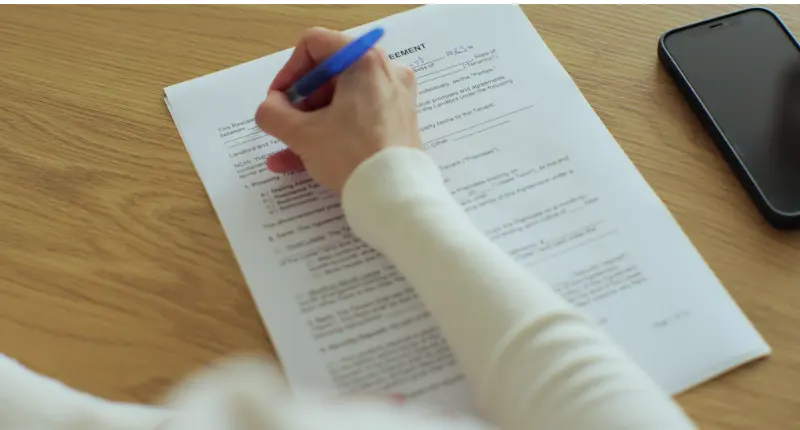
Now, you wonder how to achieve the attention-grabbing effect with your rental application form. Follow our expert-approved tips below:
1. Make sure everything is complete and correct
- Fill Out All Sections. An incomplete file looks messy, so avoid leaving any blanks as you progress.
- Review & Make Corrections. Errors can make you seem unreliable. You don’t want that effect, do you?
- Honesty Is Everything. Always tell the truth. Lies can get you rejected because landlords will verify your info anyway.
2. Show your financial stability
- Proof of Income. Provide recent pay records, bank statements, or tax returns. That way, you will prove that you can cover the rent.
- Credit Report. Attach a recent credit report. You already know that proprietors love tenants with solid credit scores.
3. Provide stellar references
- Previous Landlords. Good references from past landlords can boost your application. They can vouch for your reliability and how well you maintained the property.
- Character References. List a couple of people who can speak to confirm your responsibility and trustworthiness.
4. Write a cover letter
- Introduce Yourself. A short, friendly letter can make you memorable. Mention why you’re interested in the property and put an emphasis on your best qualities.
- Explain Any Issues. Did you get a low credit score or a break in your employment history? You’re going to need to explain the reasons for this and what you did for things to improve.
5. Prepare the needed documents
- Have Everything Ready. Collect all necessary documents before you apply. That way, you’ll show that you’re organized and serious.
- ID Copies. Attach copies of your ID to speed up the verification process.
6. Be professional and polite
- Polite Communication. Be courteous in all your interactions. A positive attitude usually leaves a great impression.
- Speedy Responses. Answer any follow-up questions quickly. That way, you’ll show that you’re active and responsible.
7. Offer a larger deposit
If you offer a larger security deposit, you will become a more attractive applicant in the landlord’s eyes. That way, you demonstrate your commitment and financial stability.
All in all, you need to maintain a laser-like focus on being prepared, honest, and proactive if you want to make your rental application tenant data truly shine — and finally land that dream rental.
Applications for Rentals: What to Avoid
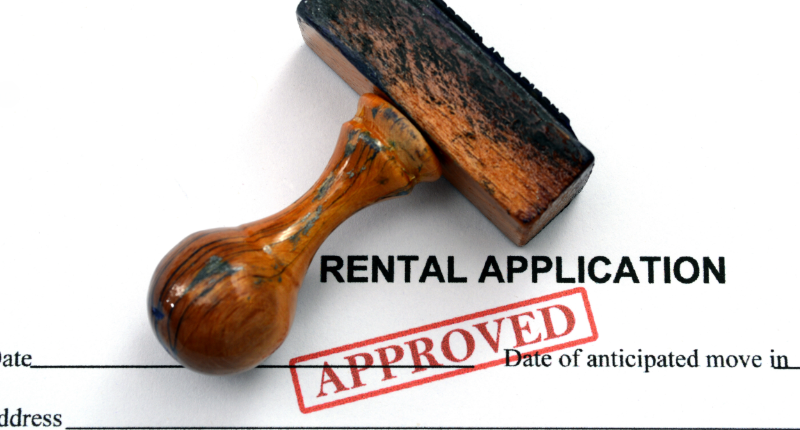
Below, you will find a guide from our experts on what to avoid if you want to make your rental application successful:
- Incomplete Forms. Always complete every section of the document. Missing information can make you seem disorganized or uninterested. If a question doesn’t refer to you, just type “N/A.” Avoid leaving it blank.
- Errors and Typos. Read the completed form several times to make sure there are no typos or errors. That’s because errors usually lead to delays or rejection.
- Dishonesty. Never lie on your application. Landlords will verify your information. Dishonesty can lead to immediate disqualification.
- Insufficient Financial Proof. Attach recent paychecks, bank statements, or tax returns. That way, you will prove you can afford the rent. A good credit score is helpful, but be upfront about any issues.
- Weak References. Select previous landlords and employers who can vouch for you. Friends or coworkers who can confirm your responsibility are good choices.
- Ignoring Application Instructions. Carefully read and follow all directions. If you miss a step, you can face rejection. Always submit the form on time. If you don’t, it can make you seem irresponsible.
- Skipping the Cover Letter. You need it to introduce yourself and explain why you’re interested in the property. Mention your best qualities and address any potential concerns. Keep your letter short, friendly, and professional.
- Not Being Prepared. Collect all necessary documents before starting the application: ID copies, proof of income, and references.
- Unprofessional Behavior. Always be polite. Keep your language professional in your form and communications. Avoid slang and overly casual phrases.
How to Apply for Rent
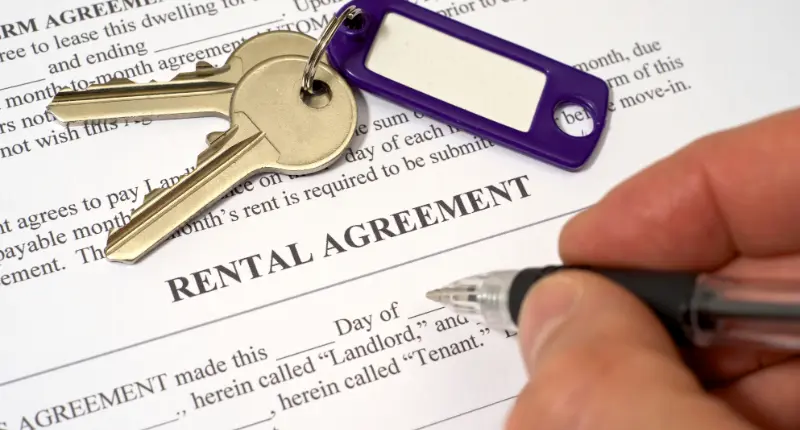
Below, we share a step-by-step roundup guide to help you apply for rent in the easiest way possible:
1. Prepare your documents
- Your driver’s license or passport;
- Recent paychecks, bank statements, or tax returns;
- A recent credit report to show your financial stability;
- Contact info of previous landlords and personal references.
2. Sign up & log in
- Go to PDFLiner’s website and create a free account.
- Use your newly acquired login info to access your account.
3. Find the rental application form
- Use the search bar to find the rental application form template you need. PDFLiner features a multitude of templates, so you are guaranteed to find the one you need (and edit it the way you like).
- Click on the form to open it in PDFLiner.
4. Fill out the application
- Fill out every part of the application.
- Correct typos and mistakes if there are any.
- Upload your ID, proof of income, credit report, and references.
5. Save and review
- Save the file as you go.
- Check the whole application and all attachments to make sure everything is 100% accurate.
6. Submit the application
- When everything looks good, use PDFLiner to send your application to the landlord or property manager.
- Look for a confirmation email to know the form was received.
7. Follow up
Haven’t heard back in a week? Feel free to send a polite follow-up email to ask about your application status.
PDFLiner is a top-notch file-editing platform that can help you create a rental application that will grab positive attention. It’s fast, easy, and filled with a treasure trove of super handy editing and sharing features, as well as proposed occupants means templates.
Rental Application & Its Legal Force
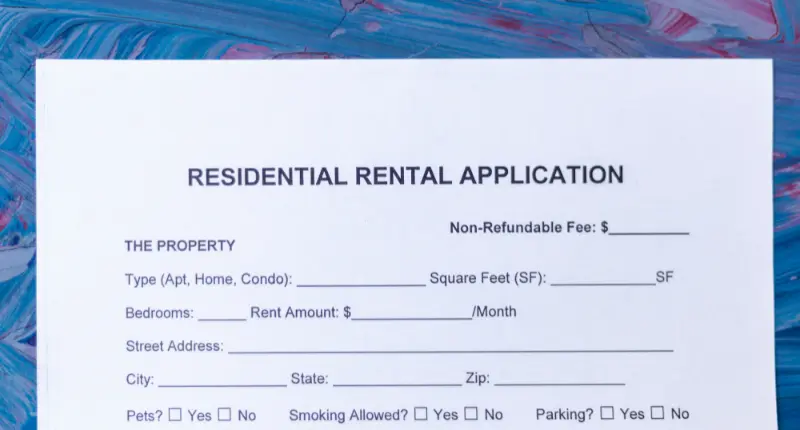
In the wise words of Benjamin Franklin, “An ounce of prevention is worth a pound of cure.” This quote resonates deeply with the need to know all the ins and outs of a rental application. As a matter of fact, a rental application is more than meets the eye. It has legal implications for both the applicant and the landlord.
While a rental application itself is not a binding contract, it sets the stage for the lease agreement, which is legally enforceable. Below, we’ve singled out the obligations of both the applicant and the proprietor.
1. Obligations of the applicant
- Honest Information. Applicants must provide truthful and accurate data. False information usually leads to rejection and potential legal consequences.
- Consent to Background Check. When you sign the application, you, as an applicant, agree to background and credit checks (as well as checks on rental history and criminal records).
- Application Fee. When you apply, you usually have to pay a fee that won't be refunded. This covers the cost of processing the application, as well as background checks.
- Holding Deposits. Sometimes, applicants may pay a holding deposit to reserve the property. If the applicant backs out or doesn't qualify, they might lose this deposit.
2. Obligations of the landlord
- Fair Screening Process. Landlords must follow fair housing laws. These laws don't allow treating people differently because of their race, color, religion, gender, where they're from, whether they have a family, or if they have a disability.
- Confidentiality. Landlords are required to keep the applicant’s personal information confidential. Misuse of this information usually leads to legal action.
- Clear Terms. Any holding deposits or fees must be clearly explained. Landlords should provide receipts and specify whether these are refundable.
- Prompt Communication. Landlords should swiftly inform applicants about the status of their applications. In case of rejection, they must explain the reasons.
3. Legal considerations for both parties
- Once the application is approved, the lease agreement becomes a binding contract. Both parties need to be clear on and okay with all the terms.
- Both landlords and applicants should keep copies of all application-related documents for their records.
- If disputes arise, both parties should refer to the lease agreement and corresponding laws. Mediation or legal action may be necessary if issues cannot be resolved amicably.
As the old saying goes, "Good things come to those who wait." Alas, applying for a rental is not a one-minute came-saw-conquered affair. That's why you need to be organized, honest, thorough, and patient if you want to make a strong impression on landlords. Just follow our expert recommendations provided in this post, prepare all necessary documents, communicate politely — and you are guaranteed to succeed!
Fill Out Rental Applications Online
Complete, sign & share the form with your landlord in one service



